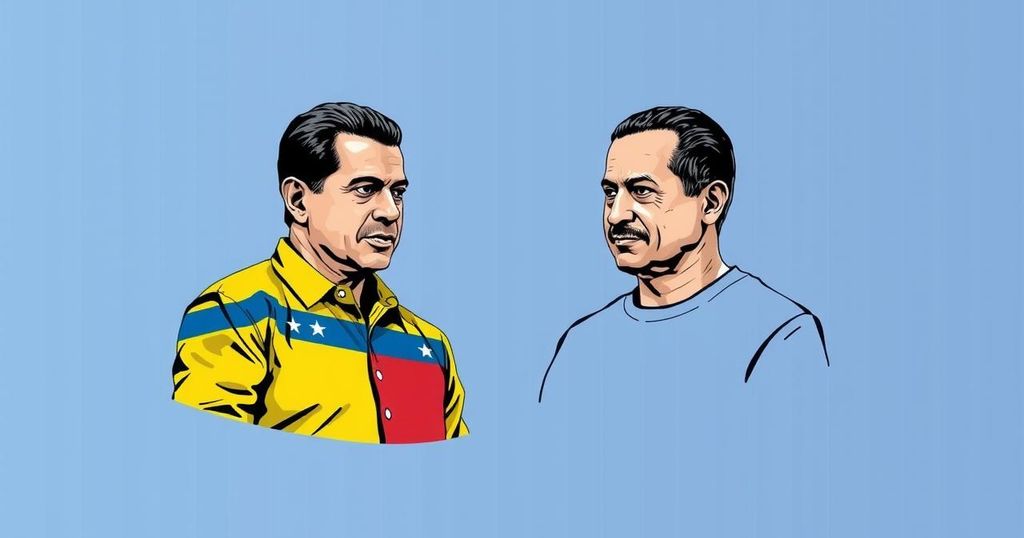Politics
BIDEN, CARACAS, CUBA, DEMOCRACY, DEPARTMENT OF THE TREASURY, EDMUND, EDMUNDO GONZÁLEZ, EUROPE, GONZÁLEZ, GONZALEZ, HIGH COURT, JUDICIARY, JUSTICE DEPARTMENT, LAW, MADURO, NICOLAS MADURO, NICOLÁS MADURO, NORTH AMERICA, POLITICS, SOUTH AMERICA, SPAIN, SUPREME COURT RULING, U. S, UNITED STATES, US, VENEZUELA
Marcus Li
0 Comments
US Imposes New Sanctions on Maduro Allies Amid Venezuela Election Repression
The United States has sanctioned 21 additional allies of Venezuelan President Nicolás Maduro, citing their involvement in repression after July’s disputed election. Key officials, including the head of the corrections agency and Maduro’s chief of staff, were sanctioned. The U.S. recognizes Edmundo González as the country’s “president-elect” while imposing further visa restrictions as tensions escalate in Venezuela.
On Wednesday, the United States enforced sanctions on 21 additional allies of Venezuelan President Nicolás Maduro, alleging their role in acts of repression following the disputed July presidential election. Those sanctioned include high-ranking officials such as the head of the corrections agency, the director of an intelligence service, and Maduro’s chief of staff. This decision expands upon previous sanctions targeting Maduro’s inner circle, which has been implicated in numerous human rights violations during the electoral aftermath.
The Biden administration has formally recognized opposition candidate Edmundo González as Venezuela’s “president-elect.” In conjunction with sanctions, the U.S. has also imposed visa restrictions on individuals found responsible for further repressing dissent in the country following the contentious July 28 elections. Despite Maduro’s claim of electoral victory, the government has failed to substantiate this with any official vote count.
After fleeing to Spain in September, González was sought for arrest due to an ongoing investigation concerning the publication of electoral results. He claimed to have achieved a decisive victory against Maduro. Earlier in September, the U.S. had already enacted sanctions against 16 of Maduro’s associates for obstructing the electoral process and committing human rights abuses. The impact of these recent sanctions remains uncertain, as loyalists to Maduro continue to maintain significant control over the Venezuelan government.
Moreover, Venezuelan lawmakers are currently discussing legislation denouncing economic sanctions as crimes against humanity, which would pave the way for prosecuting those who advocate for such measures in the future.
The background of this article focuses on the ongoing political crisis in Venezuela, where President Nicolás Maduro’s administration has faced widespread allegations of electoral fraud and human rights violations. The disputed presidential election in July resulted in international condemnation and prompted the United States to impose sanctions on key figures within Maduro’s regime. The recognition of the opposition leader Edmundo González and subsequent sanctions are indicative of the U.S. strategy to apply pressure on Maduro’s government and support a democratic transition in Venezuela.
In conclusion, the U.S. has imposed sanctions on 21 more Maduro allies amidst ongoing human rights concerns following Venezuela’s disputed election. As the Biden administration continues to support opposition leader Edmundo González, it seeks to hold accountable those involved in the repression of dissent. The effectiveness of these sanctions remains to be seen, but they serve as part of the broader effort to encourage democratic governance and protect human rights in Venezuela.
Original Source: abcnews.go.com




Post Comment